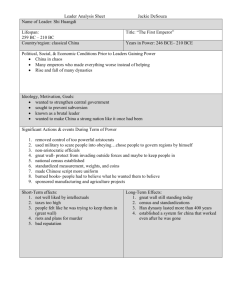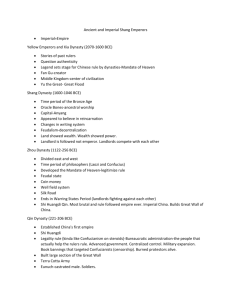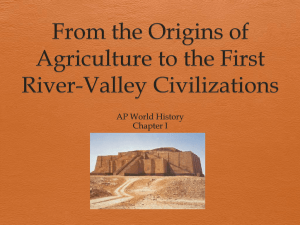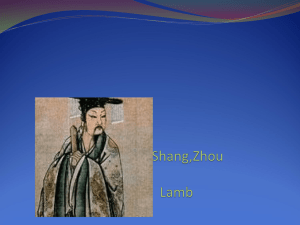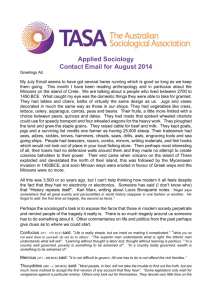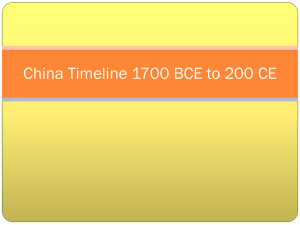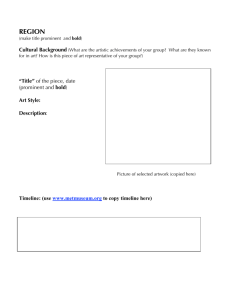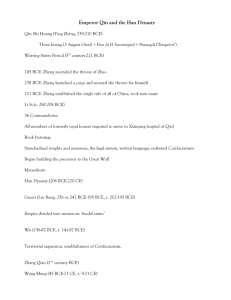File
advertisement
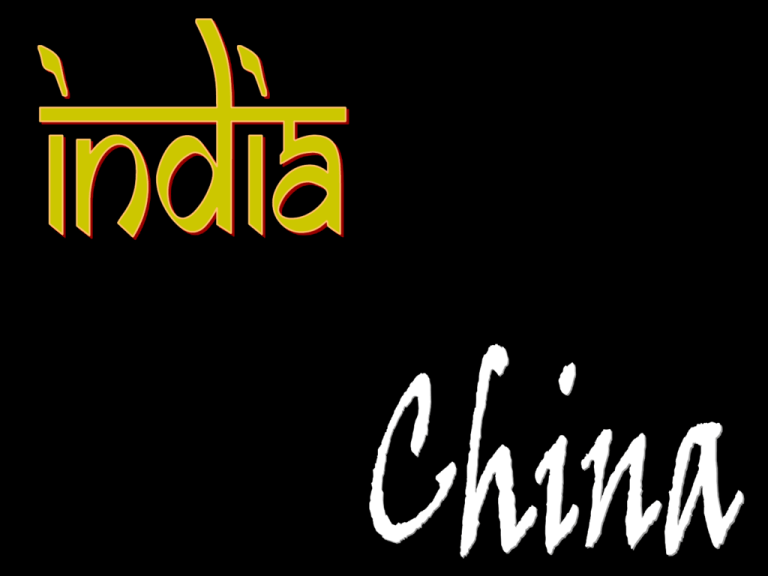
The Harappan Civilization • 3300 BCE 2400 BCE • Developed along the Indus River Aryan Migration pastoral depended on their cattle. warriors horse-drawn chariots. The Vedas 1200 BCE-600 BCE. written in SANSKRIT. Hindu core of beliefs: Rig Veda oldest work. hymns and poems. religious prayers. magical spells. lists of the gods and goddesses. Sanskrit writing Political Development • After the Aryan invasion, circa 6th c BCE • India in small regional kingdom • Some periods of centralized rule – Mauryans – Guptas • Most of the time decentralized Mauryan Empire • 320s BCE, Chandragupta Maurya filled the power gap left by Alexander the Great • Dominated the area • Set up bureaucratic administrative system • Ashoka, grandson of C. Maurya • Continued his violent approach • Began ruling by moral example • Set up a tightly organized bureaucracy – Collected taxes – Made up of officials, accountants and soldiers • Built roads, hospitals, rest houses to facilitate trade • Codified laws • After death, India declined into land of decentralized regions once again • BUT order and stability maintained because of trade Ashoka Gupta Empire • 320 CE India unified under the Guptas • Conquered many of the regional kingdoms • Left local government and administration in power • Declined after the invasion of the Huns in 550 CE • India reverts once again to regional kingdoms • Benefited from expansion of agriculture and trade • Ashoka encouraged irrigation, roads, wells, inns -- caused rise of towns • Middle men on Silk Roads • Increased long-distance trade with China, SW Asia and Med. basin Economic Development Social Structure and Gender Roles • Women – – – – – – Forbidden to read sacred prayers Legally minors Subject to supervision of male family members Family must provide large dowry Not allowed to inherit property Widows not allowed to remarry • Patriarchal society with strict social structure Social Structure and Gender Roles • Caste System – caste = something that cannot be changed – Developed during Vedic Age • Determined job, diet, marriage • Restrictions reinforced by the ruling class • Brahmins most powerful Culture, Arts, Science, Technology • Buddhism strengthened by Ashoka Maurya • Hinduism regains power with Guptas • Indian art stressed symbolism rather than accurate interpretation • Geometry and algebra flourished • Concept of zero, decimal system, “Arabic” numbers Indian Art Ancient Indian Astronomy Tool for keeping track of the conste Celestial observatory Sundial Math • • • • • Decimal system 234.567 Zero -- 0 Algorithms Arabic numerals – 0,1,2,3,4,5,6,7,8,9 Square root -- √ Shang Dynasty - 1700-1027 BCE Huang He River Oracle Bones Chinese Writing System • Each character in the Chinese language stands for one syllable or unit of language • More than 10,000 characters • Major advantage: people all over China used the same writing system, even if they spoke different languages Geography- Zhou Mandate of Heaven The Zhou justified taking over from the Shang by saying that they had lost divine approval to rule Zhou Dynasty 1029-258 BCE • • • • Leaders/Traits - Walled cities - Trade routes between cities - Mandate of Heaven - Feudalism Philosophy • - Daoism/Taoism - Laozi – 500’s BCE • - Confucianism – Analects – Chaotic government as Zhou was in decline – 522 BCE Confucianism • Based on five relationships – – – – Ruler/subject Husband/wife Father/son Older brother/younger brother – Friend/friend • Not a religion • Women were subservient to men • Wanted to reform society by showing rulers how to govern wisely • Laid groundwork for creation of a bureaucracy [a trained civil service who runs the government] • Examination system Qin Shi Huangdi1st Emperor Ruthless—Totalitarian Legalism adopted Qin Dynasty Territorial Expansion begins 214 221-206 BCE BCE Book burning-213 BCE Standardized weights and measures Single money system Uniform writing system Postal system Great Wall Bankrupted China Pottery Army-210 BCE Forced labor First time China united as one empire Great Wall Chinese Inventions • • • • Paper Gunpowder Compass Two-bladed plow – allows for increased food production • Printing • Crossbow
